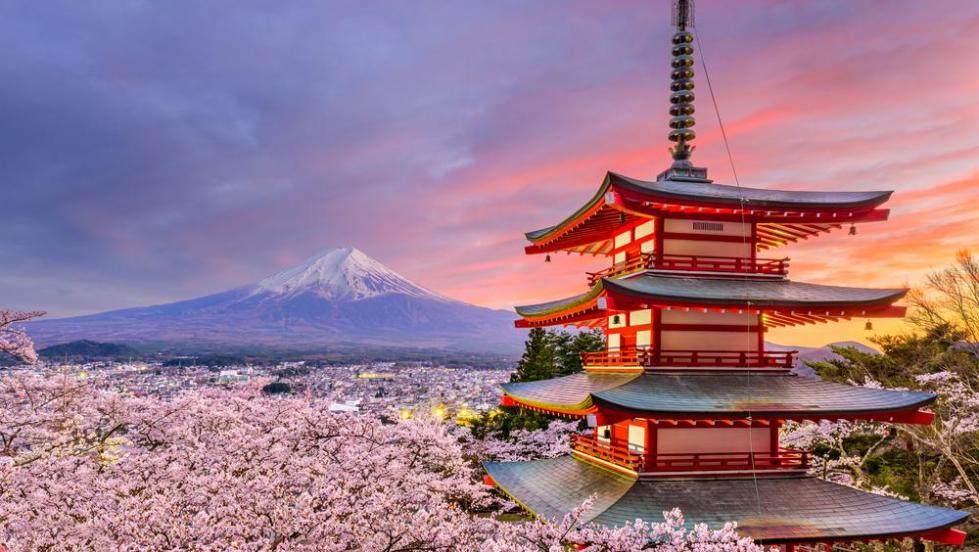About Japan
Japan is an island nation in the Pacific Ocean with dense cities, imperial palaces, mountainous national parks and thousands of shrines and temples. Shinkansen bullet trains connect the main islands of Kyushu (with Okinawa's subtropical beaches), Honshu (home to Tokyo and Hiroshima’s atomic-bomb memorial) and Hokkaido (famous for skiing). Tokyo, the capital, is known for skyscrapers, shopping and pop culture. Archaeological research indicates that Japan was inhabited as early as the Upper Paleolithic period. The first written mention of Japan is in Chinese history texts from the 1st century AD. The climate of Japan is predominantly temperate, but varies greatly from north to south. The average winter temperature in Japan is 5.1 °C (41.2 °F) and the average summer temperature is 25.2 °C (77.4 °F). Japan has nine forest ecoregions which reflect the climate and geography of the islands. They range from subtropical moist broadleaf forests in the Ryūkyū and Bonin Islands, to temperate broadleaf and mixed forests in the mild climate regions of the main islands, to temperate coniferous forests in the cold, winter portions of the northern islands. Japan has 20 World Heritage Sites, including Himeji Castle, Historic Monuments of Ancient Kyoto and Nara. Popular tourist attractions include Tokyo and Hiroshima, Mount Fuji, ski resorts such as Niseko in Hokkaido, Okinawa, riding the shinkansen and taking advantage of Japan's hotel and hotspring network.
